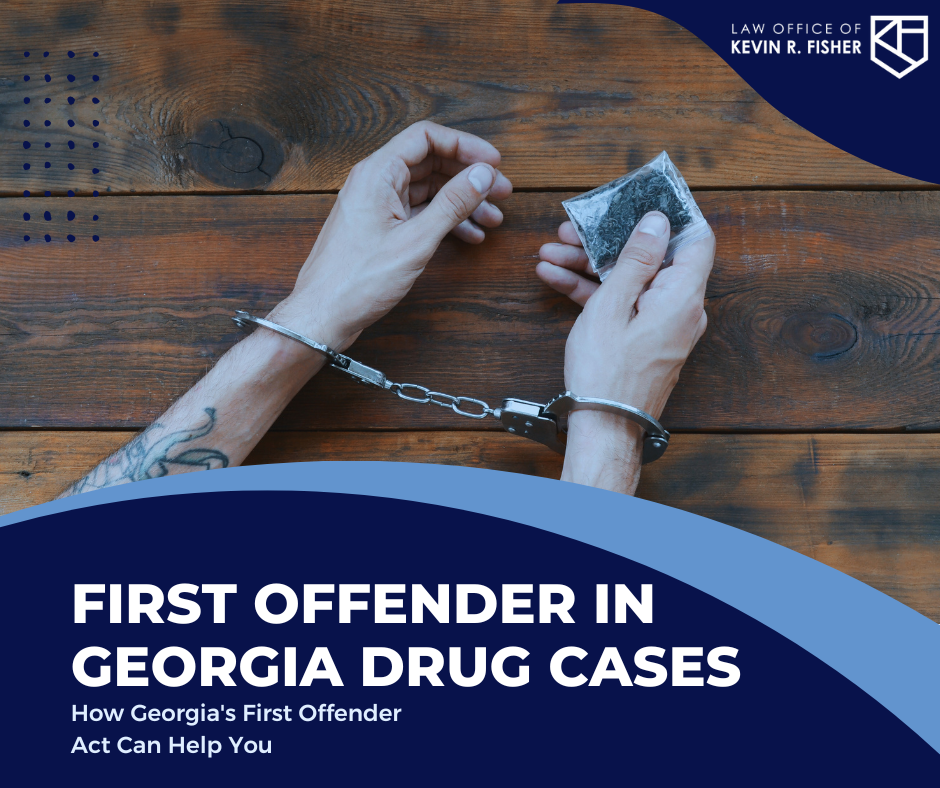Many people seeking help from a criminal defense attorney have never been charged with a crime before. Under Georgia criminal law, people who fall into this category are called “first-offenders.”
Understandably, people want to know if they can receive lighter punishments if they qualify as “first-offenders.” Keep reading to learn about first-offender treatment in Georgia and first-offender treatment for drug-related charges!
What is the Georgia First Offender Act?
Under the Georgia First Offender Act, individuals facing their first offense can avoid a conviction from appearing on their criminal record by fulfilling certain conditions such as first-offender probation, fees, and possibly jail time.
Once all the program requirements have been successfully completed and no new offenses are committed by the Defendant during their program participation, the charge(s) will be sealed and will not appear on the Defendant’s criminal history.
Who is eligible for first offender treatment in Georgia?
In Georgia, eligibility for first-offender treatment depends on several factors, including the nature of the offense. Generally, the following criteria may make a person eligible for first-offender treatment:
- First-Time Offenders: First-offender treatment is usually available to individuals with no prior felony convictions. However, certain misdemeanor convictions may not disqualify someone from being considered a first-time offender, depending on the misdemeanor.
- Non-Violent Offenses: First-offender treatment is generally available for non-violent offenses, including certain drug crimes, property crimes, and white-collar offenses. Violent offenses and serious crimes such as murder, rape, or aggravated assault are not eligible for first-offender treatment.
- Consent of the Accused: To be eligible for first offender treatment, the accused person must voluntarily enter a guilty plea or a plea of nolo contendere (no contest) and request consideration for first offender status. This plea must be made before the trial or entry of a guilty verdict.
- Judge’s Discretion: The decision to grant first offender treatment rests with the judge overseeing the case. The judge will consider various factors, including the nature and severity of the offense, the Defendant’s criminal history, the potential for rehabilitation, and the interests of justice.
What punishments are most common in First Offender cases?
There are many different options for people in the “first-offender” category. Some of the options to resolve a first-time offender’s case include:
- Drug Court Programs: Some jurisdictions have established specialized drug courts. These courts provide alternatives to incarceration for non-violent drug offenders. Drug court programs typically involve treatment, counseling, frequent drug testing, and regular court appearances. Completing a drug court program can lead to the dismissal of charges or reduced punishment.
- Pretrial Diversion Programs: Some jurisdictions offer pretrial diversion programs for eligible first-time drug offenders. These programs involve supervision, education, and counseling, usually for a specified period. After completing the pretrial diversion program, the charges can be dropped.
- Treatment and Rehabilitation: Georgia recognizes the importance of addressing drug addiction as a public health issue. First-time drug offenders can have the opportunity to receive substance abuse treatment instead of criminal penalties. These programs aim to address the underlying causes of drug addiction and provide support during recovery.
- Sentencing Options: If a first-time drug offender does not qualify for diversion programs or conditional discharge, they may still be eligible for alternative sentencing options. These can include probation, community service, drug education programs, fines, or a combination of these penalties. The specific sentence will depend on many factors including, for example, the nature of the offense and the type and quantity of drugs involved.

How does being a first-time offender work for marijuana cases in Georgia?
Georgia law provides the option of a conditional discharge for first-time drug offenders charged with possession of marijuana less than an ounce. This means that if a Defendant meets certain criteria and successfully first-offender probation, the charges against the Defendant can be dismissed. Conditional discharge requirements typically include drug screenings, fines, and community service. If the first-offender probation requirements are not completed, the judge can move forward with the original charges against the Defendant.
Why you need a lawyer for a first-time drug offense
An experienced criminal defense attorney is important in ensuring you do not serve jail time if you can avoid it. If you are eligible for first-offender treatment there may be alternative sentencing programs available, such as drug rehabilitation, diversion programs, or first-offender probation. A criminal defense attorney can guide you through these options and help you pursue alternatives to incarceration or other harsh punishments.
Questions? Give me a call.
Navigating the criminal legal system can be confusing. I have decades of experience fighting for clients at all stages of their cases. I know the players in the Georgia criminal court, and I am here to help you throughout the life of your case. If you need a criminal defense attorney or have legal questions, give me a call today![1]
[1] All information found in O.C.G.A. § 42-8-3 (2020).

